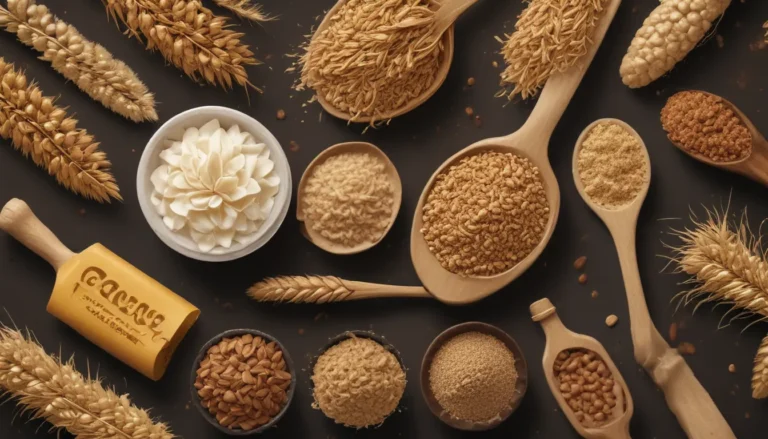The pictures in our articles might not always show exactly what the text is talking about. We use these images to make the article more interesting and eye-catching. They are there to add to the text, but not to replace it or show every detail.
Are you a chocolate aficionado with a penchant for all things sweet? Delighting in a scrumptious slice of chocolate cake can be a truly heavenly experience. The rich, velvety taste of chocolate melded with the soft, moist texture of cake is a culinary delight that never fails to bring a smile to your face. However, while we may revel in its decadent flavor, it's crucial to be conscious of the nutritional aspects of this beloved treat. In this article, we'll delve into 11 enlightening nutritional facts about chocolate cake that will empower you to make informed choices while relishing this delectable confection.
Chocolate Cake: A Timeless Temptation
For centuries, chocolate cake has reigned as a beloved dessert, enchanting taste buds with its sumptuousness. Crafted from a harmonious blend of ingredients such as flour, sugar, eggs, butter, and, of course, chocolate, this indulgent creation offers a delightful gastronomic experience. Whether enjoyed plain or adorned with luscious frosting, chocolate cake never fails to satiate cravings and evoke feelings of joy.
Calories: Savoring in Moderation
When it comes to food, calories play a significant role in our dietary decisions. A typical slice of chocolate cake ranges from 250 to 400 calories, depending on its size and specific ingredients. It's important to note that calorie counts can vary based on the recipe and serving size. Inculcating a slice of chocolate cake into an occasional treat amidst a well-rounded diet can be a delightful way to indulge without guilt.
Carbohydrates: Fuel for Energy
Carbohydrates serve as the body's primary energy source. A slice of chocolate cake typically furnishes around 40 to 60 grams of carbohydrates, derived mainly from the flour and sugar within the cake. While carbs are essential for vitality, it's prudent to consume them judiciously and maintain a balanced diet encompassing other vital nutrients.
Fat: The Essence of Decadence
Chocolate cake isn't renowned for its low-fat profile. It typically contains butter, oil, or other fats that contribute to its luxurious and moist consistency. A slice of chocolate cake may contain approximately 10 to 20 grams of fat. While fat imparts flavor and texture, prudent intake is advised due to its higher caloric content.
Protein: A Subtle Surplus
Surprisingly, chocolate cake harbors a modest amount of protein. Though not a significant source, a slice of chocolate cake can furnish about 3 to 5 grams of protein. Protein is crucial for tissue repair and growth, but it's imperative to rely on diverse protein sources beyond chocolate cake.
Fiber: A Trifling Trace
Fiber is a pivotal dietary component that aids in digestion and nurtures gut health. Regrettably, chocolate cake doesn't offer a substantial fiber content, conferring around 1 to 3 grams of fiber per slice, primarily sourced from the cake's flour. To meet your daily fiber requisites, integrating fiber-rich foods into your diet is imperative.
Sugar: Sweetness to Relish
Unsurprisingly, sugar is a key component of chocolate cake, imparting its delectable sweetness. A slice of chocolate cake may contain about 30 to 50 grams of sugar. While sugar enhances flavor, it's prudent to monitor overall sugar consumption. Excessive sugar intake can lead to various health complications, underscoring the importance of moderate chocolate cake enjoyment.
Vitamins and Minerals: Scant Contributions
Although delightful, chocolate cake doesn't boast a significant vitamin and mineral content. However, it does impart minute doses of certain nutrients. For instance, chocolate cake containing cocoa powder can proffer modest quantities of iron, magnesium, and antioxidants. It's paramount to derive a diverse array of nutrients from varied food sources for optimal nutrition.
Cholesterol: Minding Moderation
Cholesterol, a lipid compound prevalent in animal-based foods, is scarcely found in chocolate cake. With less than 20 milligrams of cholesterol per slice, chocolate cake serves as a suitable choice for individuals mindful of their cholesterol levels, devoid of high-cholesterol ingredients.
Sodium: Prudent Precaution
Sodium, an essential mineral necessitated in limited quantities by the body, is moderately present in chocolate cake. A slice typically contains around 200 to 300 milligrams of sodium. For individuals adhering to a low-sodium diet, monitoring sodium intake from chocolate cake is vital to align with dietary restrictions.
Allergens: Potential Sensitivities to Acknowledge
Chocolate cake may harbor allergens that could trigger adverse reactions in susceptible individuals. Common allergens such as eggs, wheat (gluten), dairy, and tree nuts are prevalent in chocolate cake. Individuals with known allergies or intolerances must carefully scrutinize ingredients and explore alternative recipes or substitutions to accommodate their dietary needs.
Conclusion: Embrace Indulgence with Awareness
In conclusion, chocolate cake stands as a beloved dessert synonymous with joy. While relishing it in moderation is key, comprehending its nutritional facts empowers you to make informed dietary decisions. Keep an eye on calorie content, carbohydrates, fats, proteins, sugars, and other essential nutrients within chocolate cake. Embrace this delectable treat as part of a well-rounded diet, remembering that occasional indulgence can indeed spark happiness.
Frequently Asked Questions (FAQs)
Is chocolate cake suitable for individuals with diabetes?
Due to its elevated sugar and carbohydrate content, chocolate cake may not align with the dietary requirements of individuals with diabetes. Consulting with a healthcare provider or registered dietitian is recommended to ascertain optimal dietary choices for managing blood sugar levels.
Can I substitute ingredients in chocolate cake recipes for healthier alternatives?
Yes, you can introduce substitutions in chocolate cake recipes to enhance their nutritional profile. Opt for whole wheat flour instead of traditional flour, replace refined sugar with natural sweeteners like honey or maple syrup, and consider utilizing healthier fats such as avocado or applesauce in lieu of butter.
Does chocolate cake contain caffeine?
Chocolate cake crafted with cocoa powder may contain minimal caffeine. Nevertheless, the caffeine content remains relatively low and is unlikely to evoke significant effects unless consumed in substantial quantities.
How can I reduce the calorie content of chocolate cake?
To curb calorie consumption, explore alternative sweeteners, diminish fat or oil quantities in the recipe, and opt for lighter frosting choices when preparing chocolate cake. Practicing portion control and enjoying smaller slices can also aid in managing calorie intake.
Can chocolate cake be frozen for future consumption?
Indeed, chocolate cake can be stored in the freezer for subsequent enjoyment. Ensure proper wrapping or airtight container storage to avert freezer burn. When ready to relish, thaw the cake in the refrigerator or at room temperature before serving.
As you navigate the enticing realm of chocolate cake, armed with newfound nutritional insights, may your indulgences be savored with mindfulness and joy. Embrace the culinary delights that adorn your plate, and may each bite be a delectable celebration of life's simple pleasures.






